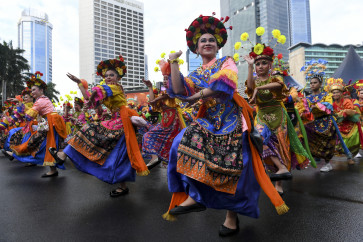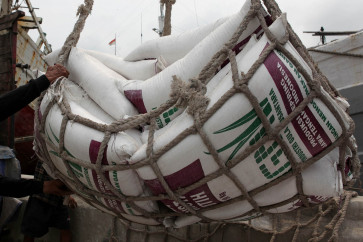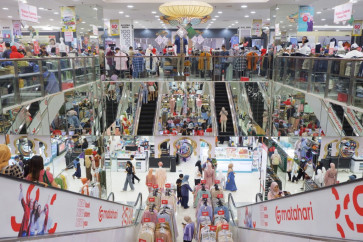Popular Reads
Top Results
Can't find what you're looking for?
View all search resultsPopular Reads
Top Results
Can't find what you're looking for?
View all search resultsMining firms leave behind ghost towns without hope
Residents in Blang Lancang village in Lhokseumawe, Aceh, demanding compensation for their lands that were taken over by LNG producer PT Arun, illustrate the usually hidden crisis of areas that have been abandoned by companies after they cease mining operations
Change text size
Gift Premium Articles
to Anyone
R
esidents in Blang Lancang village in Lhokseumawe, Aceh, demanding compensation for their lands that were taken over by LNG producer PT Arun, illustrate the usually hidden crisis of areas that have been abandoned by companies after they cease mining operations.
The villagers claim that they had been neglected since PT Arun stopped operating in the region in 2015.“We haven’t received our promised rights, such as compensation for our lands, health and education,” said Tengku Sultan Djufri S., the head of the Blang Lancang Family Association (IKBAL).
Tengku said the villagers had been evicted from their lands for the development of an LNG refinery in 1974. They were promised resettlement. Instead, they have had to live in hundreds of makeshift houses surrounding the operation zone.
“We even had difficulties in accessing our ancestors’ graves, which are located in the refinery area. It wasn’t until we voiced our demands directly to President Joko ‘Jokowi’ Widodo that we finally gained access to the graves,” he said.
Two years after the company ceased its operation, the area has become a ghost town with the villagers wondering what they can do to make a living.
Tengku said the future of more than 1,000 people was threatened, including children who had to quit school because their parents could not find jobs.
“Investors come and go. When there’s a project, they come. After they finish, they pack their bags and go back to their countries. Now, where should we look for our rights?” he said.
As the company has stopped operating, Tengku said that it was the government that was responsible for restoring their rights.
Lhokseumawe Representatives Council (DPRK) Commission B deputy speaker, Muklis Azhar, said the council would fight for the villagers’ rights.
“We will fight for their aspirations, but it’s quite difficult if we alone voice [their demands] to the central [government],” Muklis said during his visit to the village.
Despite having to live without certainty, the villagers have chosen to stay.“We will remain here until there is certainty about our rights,” said Tengku.
Wahyu Prasetyawan, a senior lecturer at the Syarif Hidayatullah Jakarta Islamic State University, said there were many such cases as the one in Blang Lancang throughout Indonesia, especially in regions where mining companies have stopped operating.
Another example is the city of Sangasanga in Kutai Kartanegara, East Kalimantan, which boomed during its gold-mining heyday in the 1990s and the height of the coal industry in the 2000s.
But since the mining companies finished extracting all the resources there, Sangasanga has turned into a ghost town with little or no business activities and plenty of mining pits.
Wahyu said many mining companies abruptly left once they ceased their operations, leaving dangerous mining pits and local people without a future.
“After digging, the pits should be closed. That’s the responsibility of the companies,” he said.
Such negligence by the government as well as the companies occasionally proves fatal.
In Kutai Kartanegara, North Penajam Paser and Samarinda, all in East Kalimantan, coal pits that have been left open after companies stopped operations claimed at least 25 lives from 2011 to 2015.
A 2010 government decree stipulates that a mining company is obliged to pay a sum of money to the government as a guarantee that they will restore their disused mining sites in the future. But the regulation is frequently ignored.
Wahyu said extraction companies should make sure that their former operational sites could be cultivated by local people, and the pits filled and made safe.
“After the mining there’s nothing that people can do because there’s no economic value there,” Wahyu said.
“While it’s impossible to fully recover the land, at least the soil should still be replanted,” he added.










